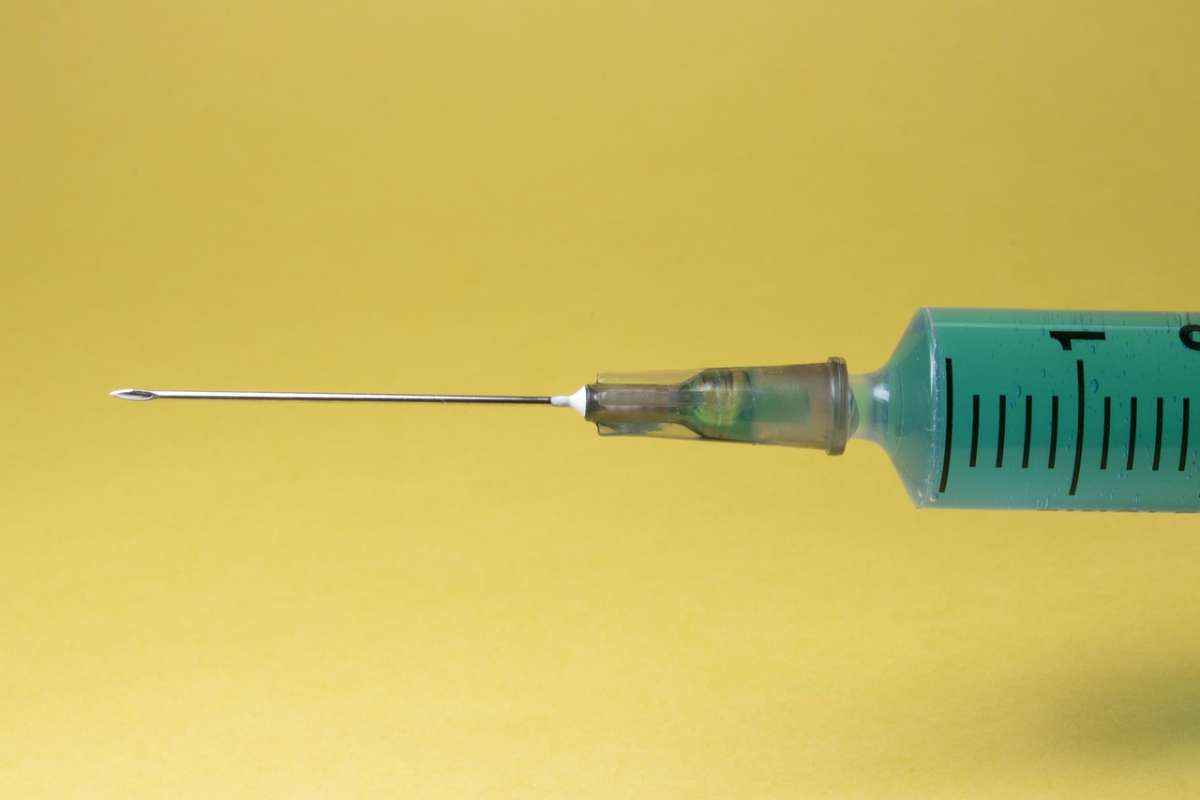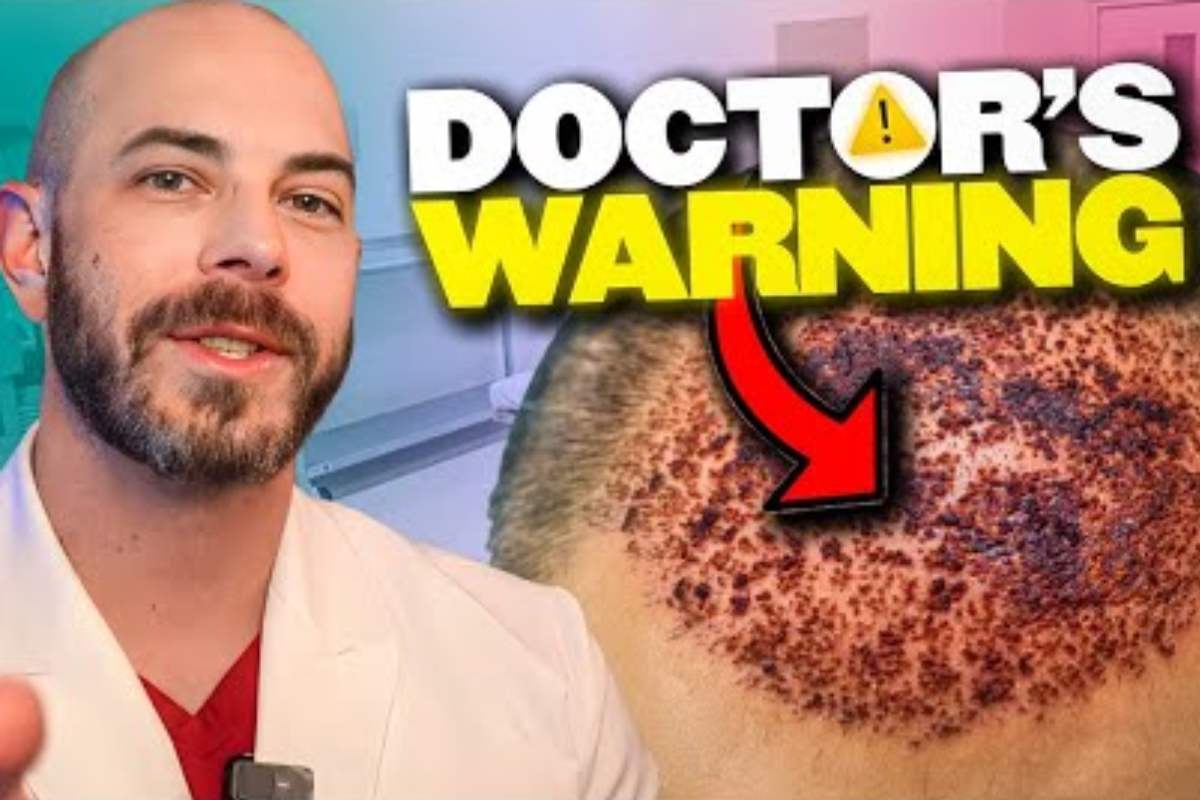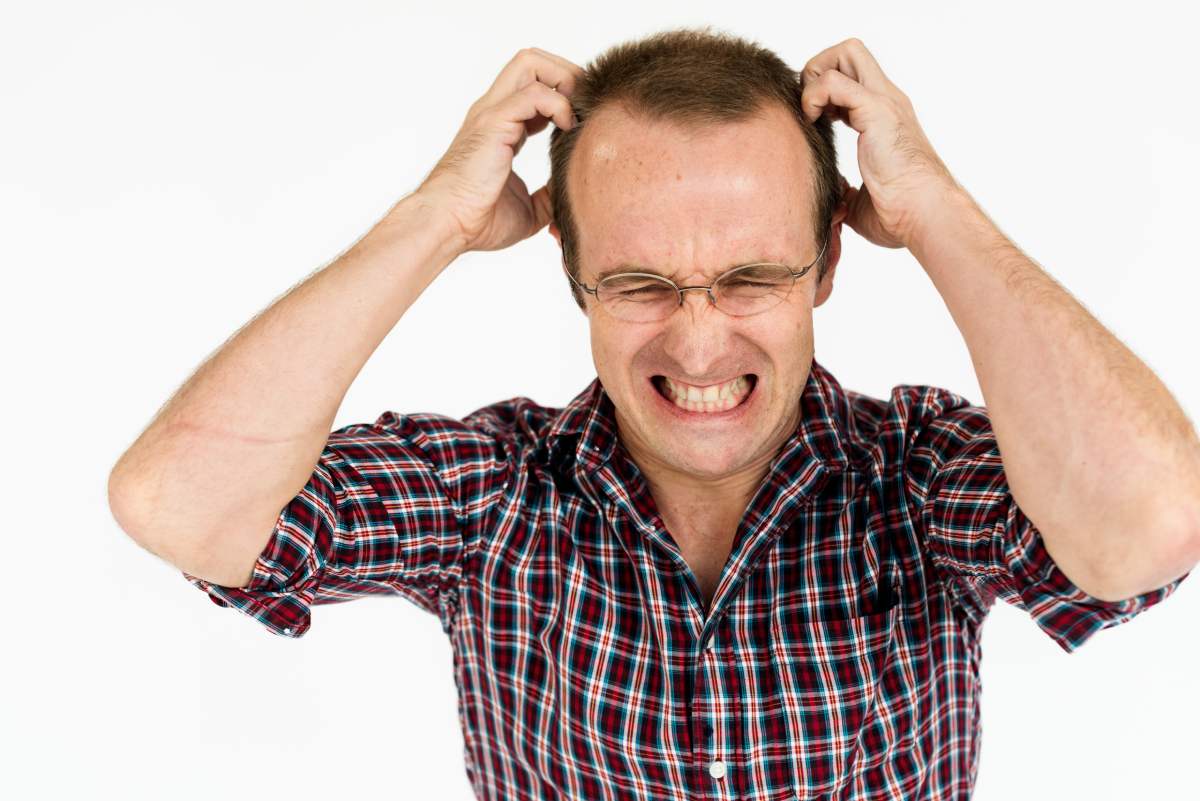Trying to figure out what causes hair loss in men has been a topic of scientific study for years. Thankfully as technology, and our understanding of science, evolves, we are able to test more theories and get a better idea of what factors may lead to male pattern baldness and general hair loss.
We’ve talked before about hormones, specifically testosterone, and its effect on hair loss, but what about estrogen? Can having higher levels of estrogen in your body, as a man, cause you to lose your hair prematurely?
While male pattern baldness is usually related to genetics and age, there are some external factors that can speed up the hair loss process, or even cause you to begin losing your hair. Sometimes this hair loss is temporary, but there are times where it can be permanent as well.
If you’re concerned about your hair thinning or falling out, it’s important to have a general understanding of how the elements in your body can have a positive or negative effect on your hair, especially the hormones in your body.
How Can High Levels of Estrogen Affect Your Hair?
The hormones in your body are regulated by multiple organs and glands including the hypothalamus, pituitary, thyroid, adrenal glands, and gonads (reproductive glands). This complicated system of hormone secretion and feedback that runs your metabolism and growth is part of our endocrine system. This system produces hormones and ensures that our body has the proper balance of these hormones. If our hormone production or regulation becomes dysfunctional, it leads to issues within our body that can effect everything from our skin and hair to our brain, muscles, and bones.
Testosterone and estrogen are both hormones that are regulated by the pituitary gland which sends signals that tell our gonads to maintain certain levels of these hormones that are needed to maintain a proper ratio within our body to ensure that other problems don’t arise.
For example, too much estrogen production in your body can lead to weight gain, fatigue, and depression. While too much testosterone in the body can lead to things like headaches, heart problems, aggression, acne and hair loss. Some of these can be life threatening while others are minor inconveniences. As we age, it’s very important to have an annual physical which often includes labs (blood tests) to ensure that everything is functioning as it should.
When it comes to hair loss, higher levels of estrogen in the body can lead to changes in hair in both men and women. However, it’s not just overall high levels of estrogen that would cause this, it’s an imbalance in the testosterone/estrogen ratio that is usually the cause. You can have slightly elevated levels of estrogen in your body and as long as the testosterone ratio is still in balance it most likely won’t lead to noticeable hair loss.
We’ve talked about increased testosterone levels leading to higher levels of DHT (dihydrotestosterone), which leads to more stimulation in your hair follicles and can cause hair on your scalp to begin to fall out while hair on the body to increase. Increased levels of testosterone in your body will also throw off that estrogen/testosterone balance. The same thing can happen if you have too much estrogen.
So while estrogen and testosterone can both play a part in hair thinning, brittle hair, and even hair loss, it’s more likely due to the ratio of these two hormones being off than it being contributed it an elevated level of one or the other.
Why Would Estrogen Levels in Men Go Up?
There are number of reasons or external circumstances that could cause a man’s estrogen levels to go up. Some of these include medications and food sources, but elevated estrogen levels can also be caused by genetics as well as various medical conditions.
The most common reason for elevated estrogen in adult males in the US today is hormone replacement therapy (HRT). As “low-T” became a common condition advertised on TV and social media, the number of men on HRT increased drastically. HRT for men usually involves taking prescription testosterone through injections, gels, or pills but sometimes it comes in the form of testosterone boosting medications like Growth Hormone or Clomiphene (Clomid). Though the goal is to increase one’s testosterone levels, because of the feedback loop with your hypothalamus and pituitary gland, the body may recognize that the balance of testosterone to estrogen is off and decide to convert some of that testosterone to estrogen. A common side effect of elevated estrogen is unwanted breast growth in a man using any form of HRT. So if you’re on HRT, be sure that your doctor is measuring levels of your hormones regularly to ensure that they are balanced.
Less commonly, if you’re taking certain medications like antibiotics (ampicillin and tetracycline) or phenothiazines (mood stabilizers for mental health conditions), these can also lead to higher estrogen levels.
If you’re eating a lot of natural foods like tofu, soybeans, hummus, or dried fruits, these can also lead to an increase in estrogen in your body. This is why we often find higher estrogen levels in vegans because vegan food options typical contain more estrogen.
In addition to what you’re putting into your body, medical conditions such as tumors, stress, or weight gain can also boost the estrogen levels in your body. Excess body fat produces estrogen outside of the normal glands.
When it coms to hair thinning and hair loss it’s important to talk with your doctor before making any major changes in your lifestyle. Self-diagnosing the reason you’re losing your hair could cause more problems down the road so let your doctor help you to make sure you get the proper treatment.
An imbalance in estrogen and testosterone can be determined with a simple blood test and treated with various medications and/or a change of diet, but you wouldn’t want to make these changes without first talking with your doctor.
At the Limmer Hair Transplant Center in San Antonio, we specialize in all things related to hair loss. We can help determine what is the cause of your hair loss and help you restore your hair to what it once was.







